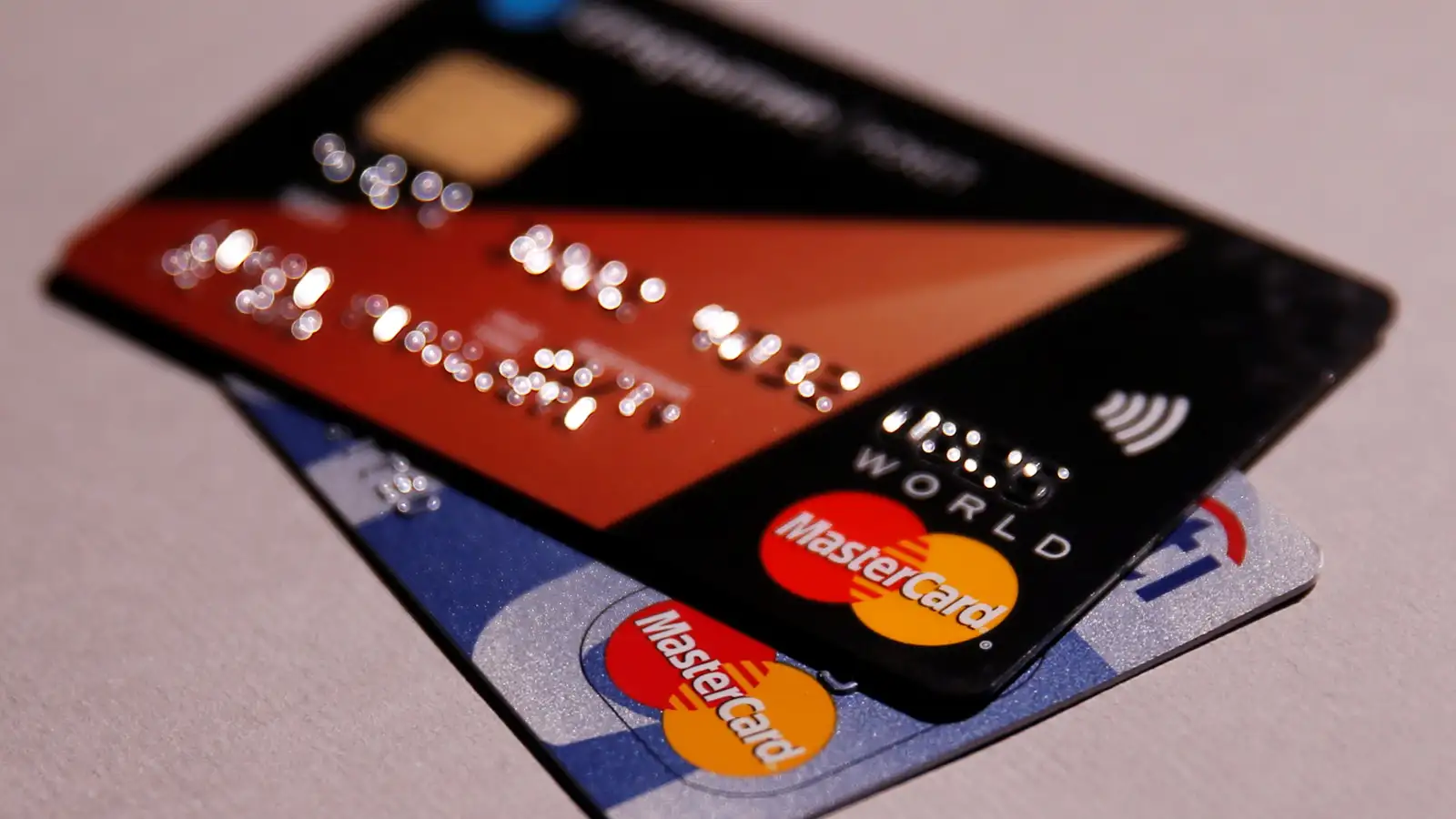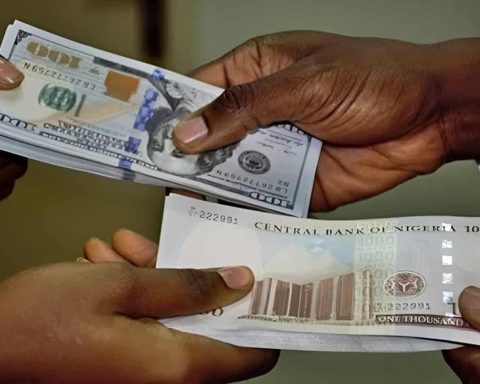HIGHLIGHTS
Join our WhatsApp Channel
Chargeback fraud and insufficient funds are two major challenges that Nigerian fintech startups like Payday and Chipper Cash are facing in providing virtual dollar cards to their users.
Card schemes like Mastercard require issuers to limit chargeback rates to 1%, but the surge in chargeback cases at Nigerian fintechs is impacting their operations.
Startups must conduct appropriate KYC checks and require customers to approve transactions before inputting their card details. Providing a subscription tracker or disposable cards could be a solution to reducing incidents of declined transactions due to insufficient funds.
Virtual dollar cards in Nigeria allow purchases that exceed limits imposed by local banks and have gained widespread acceptance. However, startups like Payday have faced the problem of chargeback fraud, which occurs when users make purchases on eCommerce websites, claim they never received the item, and request a chargeback. This is in breach of the 1% chargeback rate required by card schemes like Mastercard and VISA, leading to high numbers of chargeback cases in Nigerian fintechs.
Transaction decline due to insufficient funds
Another challenge facing virtual dollar cards providers is transactions declined due to insufficient funds, which could lead to the permanent termination of a user’s card and Payday account. Startups must think hard about solutions to these challenges, such as providing subscription trackers or disposable cards.
Solutions to Challenges
To reduce these incidents, startups must conduct appropriate KYC checks and require customers to approve transactions after inputting their card details. Customers must also pay a 20% fee before chargebacks are disputed on their behalf, and the filing of chargebacks per user is limited to once a month.
READ: Flutterwave Shuts Down Its Virtual Dollar Card Service
Overall, the demand for virtual dollar cards driven by the limits placed by commercial banks could drive down the demand for them. However, Nigerian fintechs like Bridgecard intend to launch virtual and physical naira cards for such scenarios. Startups must consider the challenges involved in providing virtual cards to Nigerians and develop adequate solutions to these problems.

Aka Ekene, PBA Journalism Mentee
- Aka Ekene, PBA Journalism Mentee
- Aka Ekene, PBA Journalism Mentee
- Aka Ekene, PBA Journalism Mentee
- Aka Ekene, PBA Journalism Mentee
- Aka Ekene, PBA Journalism Mentee
- Aka Ekene, PBA Journalism Mentee
- Aka Ekene, PBA Journalism Mentee
- Aka Ekene, PBA Journalism Mentee
- Aka Ekene, PBA Journalism Mentee
- Aka Ekene, PBA Journalism Mentee
- Aka Ekene, PBA Journalism Mentee
- Aka Ekene, PBA Journalism Mentee
- Aka Ekene, PBA Journalism Mentee
- Aka Ekene, PBA Journalism Mentee
- Aka Ekene, PBA Journalism Mentee
- Aka Ekene, PBA Journalism Mentee
- Aka Ekene, PBA Journalism Mentee
- Aka Ekene, PBA Journalism Mentee
- Aka Ekene, PBA Journalism Mentee
- Aka Ekene, PBA Journalism Mentee
- Aka Ekene, PBA Journalism Mentee
- Aka Ekene, PBA Journalism Mentee
- Aka Ekene, PBA Journalism Mentee
- Aka Ekene, PBA Journalism Mentee
- Aka Ekene, PBA Journalism Mentee
- Aka Ekene, PBA Journalism Mentee
- Aka Ekene, PBA Journalism Mentee
- Aka Ekene, PBA Journalism Mentee
- Aka Ekene, PBA Journalism Mentee
- Aka Ekene, PBA Journalism Mentee
- Aka Ekene, PBA Journalism Mentee
- Aka Ekene, PBA Journalism Mentee
- Aka Ekene, PBA Journalism Mentee
- Aka Ekene, PBA Journalism Mentee
- Aka Ekene, PBA Journalism Mentee
- Aka Ekene, PBA Journalism Mentee
- Aka Ekene, PBA Journalism Mentee
- Aka Ekene, PBA Journalism Mentee
- Aka Ekene, PBA Journalism Mentee
- Aka Ekene, PBA Journalism Mentee
- Aka Ekene, PBA Journalism Mentee
- Aka Ekene, PBA Journalism Mentee
- Aka Ekene, PBA Journalism Mentee
- Aka Ekene, PBA Journalism Mentee
- Aka Ekene, PBA Journalism Mentee
- Aka Ekene, PBA Journalism Mentee
- Aka Ekene, PBA Journalism Mentee
- Aka Ekene, PBA Journalism Mentee
- Aka Ekene, PBA Journalism Mentee
- Aka Ekene, PBA Journalism Mentee
- Aka Ekene, PBA Journalism Mentee
- Aka Ekene, PBA Journalism Mentee
- Aka Ekene, PBA Journalism Mentee
- Aka Ekene, PBA Journalism Mentee
- Aka Ekene, PBA Journalism Mentee
- Aka Ekene, PBA Journalism Mentee
- Aka Ekene, PBA Journalism Mentee
- Aka Ekene, PBA Journalism Mentee
- Aka Ekene, PBA Journalism Mentee
- Aka Ekene, PBA Journalism Mentee
- Aka Ekene, PBA Journalism Mentee
- Aka Ekene, PBA Journalism Mentee
- Aka Ekene, PBA Journalism Mentee
- Aka Ekene, PBA Journalism Mentee
- Aka Ekene, PBA Journalism Mentee
- Aka Ekene, PBA Journalism Mentee
- Aka Ekene, PBA Journalism Mentee
- Aka Ekene, PBA Journalism Mentee
- Aka Ekene, PBA Journalism Mentee
- Aka Ekene, PBA Journalism Mentee
- Aka Ekene, PBA Journalism Mentee
- Aka Ekene, PBA Journalism Mentee
- Aka Ekene, PBA Journalism Mentee
- Aka Ekene, PBA Journalism Mentee
- Aka Ekene, PBA Journalism Mentee
- Aka Ekene, PBA Journalism Mentee
- Aka Ekene, PBA Journalism Mentee
- Aka Ekene, PBA Journalism Mentee
- Aka Ekene, PBA Journalism Mentee
- Aka Ekene, PBA Journalism Mentee
- Aka Ekene, PBA Journalism Mentee
- Aka Ekene, PBA Journalism Mentee
- Aka Ekene, PBA Journalism Mentee
- Aka Ekene, PBA Journalism Mentee
- Aka Ekene, PBA Journalism Mentee
- Aka Ekene, PBA Journalism Mentee
- Aka Ekene, PBA Journalism Mentee
- Aka Ekene, PBA Journalism Mentee
- Aka Ekene, PBA Journalism Mentee
- Aka Ekene, PBA Journalism Mentee
- Aka Ekene, PBA Journalism Mentee
- Aka Ekene, PBA Journalism Mentee
- Aka Ekene, PBA Journalism Mentee
- Aka Ekene, PBA Journalism Mentee
- Aka Ekene, PBA Journalism Mentee
- Aka Ekene, PBA Journalism Mentee
- Aka Ekene, PBA Journalism Mentee
- Aka Ekene, PBA Journalism Mentee
- Aka Ekene, PBA Journalism Mentee
- Aka Ekene, PBA Journalism Mentee
- Aka Ekene, PBA Journalism Mentee
- Aka Ekene, PBA Journalism Mentee
- Aka Ekene, PBA Journalism Mentee
- Aka Ekene, PBA Journalism Mentee
- Aka Ekene, PBA Journalism Mentee
- Aka Ekene, PBA Journalism Mentee
- Aka Ekene, PBA Journalism Mentee
- Aka Ekene, PBA Journalism Mentee
- Aka Ekene, PBA Journalism Mentee
- Aka Ekene, PBA Journalism Mentee
- Aka Ekene, PBA Journalism Mentee
- Aka Ekene, PBA Journalism Mentee
- Aka Ekene, PBA Journalism Mentee
- Aka Ekene, PBA Journalism Mentee
- Aka Ekene, PBA Journalism Mentee
- Aka Ekene, PBA Journalism Mentee
- Aka Ekene, PBA Journalism Mentee
- Aka Ekene, PBA Journalism Mentee
- Aka Ekene, PBA Journalism Mentee
- Aka Ekene, PBA Journalism Mentee
- Aka Ekene, PBA Journalism Mentee
- Aka Ekene, PBA Journalism Mentee
- Aka Ekene, PBA Journalism Mentee
- Aka Ekene, PBA Journalism Mentee
- Aka Ekene, PBA Journalism Mentee
- Aka Ekene, PBA Journalism Mentee
- Aka Ekene, PBA Journalism Mentee
- Aka Ekene, PBA Journalism Mentee
- Aka Ekene, PBA Journalism Mentee
- Aka Ekene, PBA Journalism Mentee
- Aka Ekene, PBA Journalism Mentee
- Aka Ekene, PBA Journalism Mentee
- Aka Ekene, PBA Journalism Mentee
- Aka Ekene, PBA Journalism Mentee
- Aka Ekene, PBA Journalism Mentee
- Aka Ekene, PBA Journalism Mentee
- Aka Ekene, PBA Journalism Mentee
- Aka Ekene, PBA Journalism Mentee
- Aka Ekene, PBA Journalism Mentee
- Aka Ekene, PBA Journalism Mentee
- Aka Ekene, PBA Journalism Mentee
- Aka Ekene, PBA Journalism Mentee
- Aka Ekene, PBA Journalism Mentee
- Aka Ekene, PBA Journalism Mentee
- Aka Ekene, PBA Journalism Mentee
- Aka Ekene, PBA Journalism Mentee
- Aka Ekene, PBA Journalism Mentee
- Aka Ekene, PBA Journalism Mentee
- Aka Ekene, PBA Journalism Mentee
- Aka Ekene, PBA Journalism Mentee
- Aka Ekene, PBA Journalism Mentee
- Aka Ekene, PBA Journalism Mentee
- Aka Ekene, PBA Journalism Mentee
- Aka Ekene, PBA Journalism Mentee
- Aka Ekene, PBA Journalism Mentee
- Aka Ekene, PBA Journalism Mentee
- Aka Ekene, PBA Journalism Mentee
- Aka Ekene, PBA Journalism Mentee
- Aka Ekene, PBA Journalism Mentee
- Aka Ekene, PBA Journalism Mentee
- Aka Ekene, PBA Journalism Mentee
- Aka Ekene, PBA Journalism Mentee
- Aka Ekene, PBA Journalism Mentee
- Aka Ekene, PBA Journalism Mentee
- Aka Ekene, PBA Journalism Mentee













